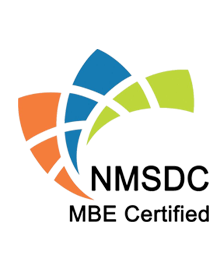
In today's data-driven world, businesses that effectively harness analytics can drive significant transformation and sustainable growth. Establishing a robust analytics framework is crucial for gaining insights, making informed decisions, and staying competitive. Here are the keys to establishing transformative, sustainable analytics within your organization.
Define Clear Objectives and Goals
The foundation of any successful analytics initiative is a clear understanding of what you aim to achieve. Start by defining specific, measurable objectives aligned with your business goals. Whether it’s improving customer satisfaction, optimizing operations, or driving sales growth, having clear targets will guide your analytics efforts and ensure they are impactful.
Invest in the Right Technology
The right technology stack is essential for effective analytics. Invest in scalable and flexible tools that can handle your data volume and complexity. Key technologies include:
-
Data Management Platforms
For collecting, storing, and organizing data.
-
Analytics and BI Tools
For analyzing data and generating insights.
-
Visualization Tools
For creating intuitive dashboards and reports.
-
Machine Learning and AI
For advanced analytics and predictive modeling.
Ensure these tools integrate seamlessly with your existing systems to streamline data flow and analysis.
Foster a Data-Driven Culture
A data-driven culture is critical for the success of your analytics initiatives. Encourage employees at all levels to use data in their decision-making processes. Promote transparency and accessibility of data across the organization. Providing training and resources to enhance data literacy will empower your team to leverage analytics effectively.
Ensure Data Quality and Governance
High-quality data is the cornerstone of reliable analytics. Implement robust data governance practices to ensure data accuracy, consistency, and security. This includes establishing data standards, policies, and procedures for data management. Regularly audit and cleanse your data to maintain its integrity and relevance.
Focus on User-Friendly Reporting
Analytics should provide actionable insights that are easy to understand and act upon. Develop user-friendly reports and dashboards tailored to the needs of different stakeholders. Visualization tools can help present complex data in an intuitive format, making it easier for decision-makers to grasp key insights and take informed actions.
Leverage Advanced Analytics Techniques
To unlock deeper insights, incorporate advanced analytics techniques such as:
-
Predictive Analytics
To forecast future trends and behaviors.
-
Prescriptive Analytics
To recommend actions based on predictive insights.
-
Real-Time Analytics
To monitor and analyze data as it is generated.
-
Natural Language Processing
To analyze and interpret textual data.
These techniques can provide a competitive edge by uncovering hidden patterns and enabling proactive decision-making.
Integrate Analytics into Business Processes
For analytics to be truly transformative, they must be embedded into your business processes. Ensure that insights from analytics are integrated into daily operations, strategic planning, and decision-making workflows. This integration helps drive continuous improvement and ensures that analytics are an integral part of your organizational fabric.
Measure and Optimize Analytics Performance
Continuously measure the performance of your analytics initiatives against your defined objectives. Use key performance indicators (KPIs) to track progress and identify areas for improvement. Regularly review and refine your analytics processes, technologies, and strategies to enhance their effectiveness and sustainability.
Encourage Collaboration and Cross-Functional Teams
Collaboration is key to maximizing the impact of analytics. Encourage cross-functional teams to work together on analytics projects, combining their expertise to generate comprehensive insights. This collaborative approach ensures that analytics initiatives address diverse perspectives and business needs.
Stay Agile and Adaptive
The analytics landscape is constantly evolving, with new technologies and methodologies emerging regularly. Stay agile and be prepared to adapt your analytics strategies to keep pace with these changes. Continuous learning and experimentation will help you stay ahead of the curve and maintain a competitive advantage.
Conclusion
Establishing transformative, sustainable analytics is a multi-faceted process that requires a strategic approach, the right technology, and a supportive culture. By defining clear objectives, ensuring data quality, fostering a data-driven culture, and leveraging advanced techniques, businesses can unlock the full potential of their data. Integrating analytics into business processes and staying agile will enable continuous improvement and long-term success in the ever-evolving data landscape.



